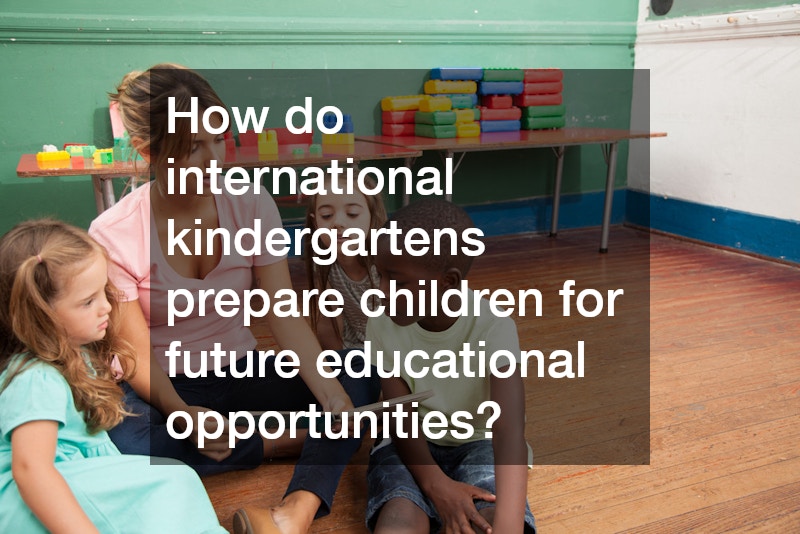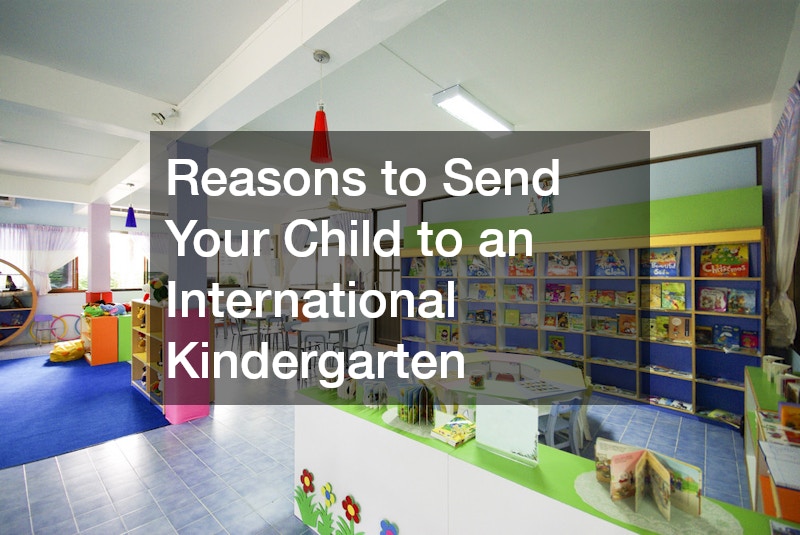In today’s increasingly interconnected world, parents face a myriad of educational options for their young children. One compelling option is enrolling them in an international kindergarten. This article delves into the benefits of such a choice, unpacking the unique advantages and what it could mean for your child’s future.
What are the advantages of enrolling a child in an international kindergarten?
Exposure to Multicultural Environments
One of the most significant benefits of an international kindergarten is the exposure to various cultures and languages. This early interaction with diversity equips children with open minds and adaptability, key traits in the modern world.
Children who are immersed in multicultural environments develop better cognitive flexibility. These experiences prepare them to understand and appreciate different traditions and perspectives.
Moreover, continuous exposure to different cultures can enhance a child’s social skills. These interactions often result in higher empathy and social awareness, valuable traits for personal and professional growth.
Enhanced Language Acquisition
International kindergartens employ immersion techniques that significantly accelerate language learning. Engaging with peers and teachers in multiple languages fosters natural acquisition.
Studies suggest that children in multilingual environments excel in language development. Early exposure facilitates improved pronunciation and conversational skills over time.
Furthermore, bilingual or multilingual children often have an academic edge. The cognitive processes involved in learning languages enhance problem-solving abilities and creativity, providing a robust educational foundation.
How does an international curriculum differ from a local one?
International Baccalaureate (IB) Programs
The International Baccalaureate (IB) program offers a cohesive, comprehensive educational framework. Its implementation in kindergartens introduces children to a broad spectrum of learning objectives.
Through IB’s inquiry-based approach, children engage in active exploration of subjects. This method fosters independent thinking and a deeper understanding of content over rote memorization.
Additionally, IB kindergartens encourage children to reflect on their learning experiences. This critical element helps them develop self-awareness and instills a lifelong love of learning.
Focus on Global Citizenship
International curricula emphasize the importance of global citizenship from an early age. Activities are crafted to create awareness and responsibility towards the world.
Children learn about environmental stewardship and social responsibility. This focus ensures that they grow into empathetic and conscientious global citizens.
Moreover, these programs celebrate cultural differences, fostering respect and curiosity. Students become adept at navigating and appreciating global cultures, preparing them for future interactions.
Are there any cultural challenges my child may face?
Adapting to Diverse Cultural Norms
In international settings, children may encounter various cultural practices and norms. This exposure requires them to adapt and respect these differences.
Such adaptations can initially be challenging, but they ultimately promote resilience. Children learn to function effectively in diverse environments, a skill critical for future success.
Furthermore, adapting to diverse norms encourages flexibility and problem-solving. These experiences contribute to emotional intelligence and build a foundation for intercultural navigation skills.
Building Intercultural Competence
Developing intercultural competence involves understanding and respecting cultural differences. International kindergartens instill this capability in children through daily interactions.
Intercultural competence enhances cognitive and social growth, empowering children to collaborate across cultures. They learn to communicate effectively, appreciating the nuances and contexts of cultural expressions.
Furthermore, children who master intercultural skills often demonstrate greater creativity and adaptability. These qualities not only support personal development but also improve their prospects in a globalized job market.
What are the social impacts on children attending international kindergartens?
Building a Global Network
International kindergartens provide children with the unique opportunity to form friendships with peers from around the world. This diverse peer group expands their social horizons and cultivates a spirit of inclusivity.
These friendships often extend beyond the classroom, helping children understand and appreciate various cultural perspectives. This cross-cultural interaction fosters mutual respect and broadens worldviews.
A global network established at a young age can open doors for future collaboration and opportunities. These connections lay the groundwork for influential and lasting international relationships.
Social Skill Development
Immersion in an international environment fosters the development of advanced social skills. Children learn to navigate complex social situations with empathy and understanding.
This environment encourages cooperative play and teamwork, enhancing interpersonal competencies. The skills gained in these settings are invaluable in forming well-rounded and socially adept individuals.
Additionally, a focus on empathy in international settings enhances emotional intelligence. This emotional awareness and ability to connect with others positively impact personal and academic endeavors.
How do international kindergartens prepare children for future educational opportunities?
Foundation for International Education
International kindergartens establish a strong educational foundation, facilitating seamless transitions to further international schooling. These early experiences align well with global educational standards.
The unique curricula nurture confidence and independent learning, key components for academic success. Children become more adept at continuing their education in diverse settings.
Furthermore, the comprehensive approach equips children for future academic pursuits. Foundations laid in international kindergartens often translate to heightened academic performance and motivation.
Preparation for a Dynamic Global Economy
By attending international kindergartens, children are better prepared for the multifaceted demands of a global economy. They gain valuable skills that are highly sought after by future employers.
The adaptability, problem-solving, and language skills acquired in these environments are crucial in an interconnected world. Children learn to think globally and act locally, essential traits for contemporary business landscapes.
Lastly, the emphasis on global citizenship and cultural awareness fosters entrepreneurial spirit and leadership. Prepared with these competencies, children are well-positioned to thrive in a rapidly evolving global market.

